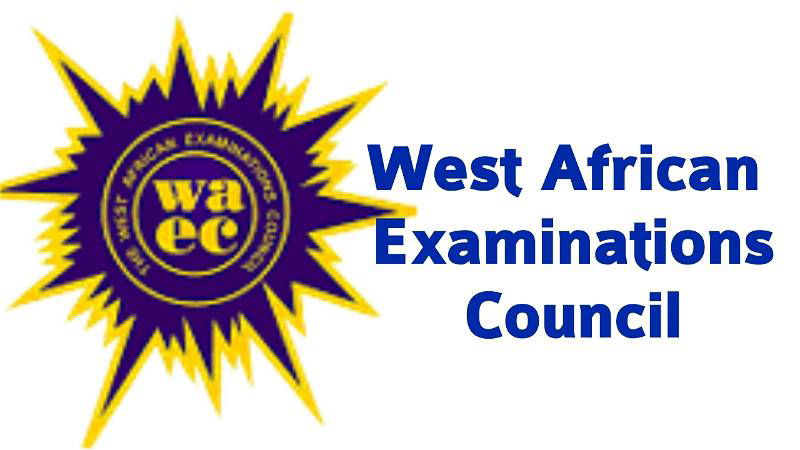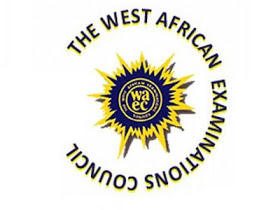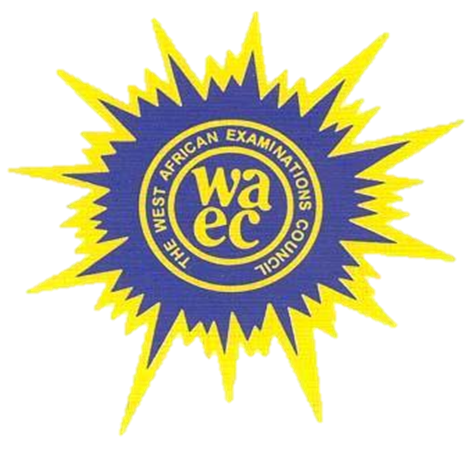WAEC 2024 Civic Education Obj And Essay Answer – May/June Expo
WELCOME TO AYOSTUFFS BEST EXAM EVER
==================================
KEEP REFRESH THIS PAGE IN EVERY 5MIN
==================================
CIVIC EDUCATION OBJ
1-10 ABABDBABAB
11-20 BDABDDCDCC
21-30 DABBBCBCBA
31-40 CCBABBBACC
41-50 DBBCDBDBBC
COMPLETED!!!
==================================
CIVIC EDUCATION
SECTION A
(1a)
(i) Tradition: Authority based on customs, traditions, and historical practices.
(ii) Rational-Legal: Authority based on laws, rules, and regulations.
(iii) Charisma: Authority based on an individual's exceptional qualities, personality, or leadership abilities.
(1b)
(i) Cultural Preservation: Traditional leaders play a vital role in preserving and promoting cultural heritage, traditions, and values. They help maintain cultural identity and pass it down to future generations.
(ii) Conflict Resolution: Traditional leaders often serve as mediators and arbitrators, resolving conflicts within their communities. Their authority and wisdom help to settle disputes and maintain social harmony.
(iii) Representation: Traditional leaders represent their communities in various forums, such as local government, national assemblies, and international organizations. They voice the concerns and interests of their people.
(iv) Leadership: Traditional leaders provide guidance, direction, and inspiration to their followers. They offer vision, wisdom, and counsel, helping their communities navigate challenges and opportunities.
(v) Symbolic Role: Traditional leaders serve as symbols of unity, identity, and stability. They embody the history, values, and aspirations of their communities, providing a sense of continuity and belonging.
(vi) Community Development: Traditional leaders initiate and support development projects, promoting social and economic progress in their communities. They partner with governments, NGOs, and other stakeholders to improve healthcare, education, infrastructure, and economic opportunities.
==================================
(2a)
Community service is voluntary work performed by individuals or groups to benefit a community. It involves activities like assisting at shelters, cleaning public spaces, or organizing local events. The goal is to address community needs, promote social responsibility, and enhance the well-being of the community.
(2b)
(i) Skill Development: Community service fosters practical skills such as teamwork, communication, and leadership, which are valuable in various life situations and careers.
(ii) Personal Growth: It enhances personal qualities like empathy, responsibility, and resilience, contributing to overall character development.
(iii) Community Improvement: By addressing local needs, community service helps improve public spaces, support vulnerable populations, and enhance the quality of life for residents.
(iv) Social Connections: Volunteering builds relationships with diverse individuals and organizations, leading to a stronger sense of community and valuable networking opportunities.
(v) Career Advancement: Participation in community service provides experience that can enhance resumes, improve job prospects, and develop a professional reputation.
(vi) Health and Well-being: Engaging in community service can boost mental and emotional health by reducing stress, increasing happiness, and providing a sense of purpose and fulfillment.
==================================
(3a)
(i) Pedestrians
(ii) Motorists (car drivers)
(iii) Cyclists
(3b)
(i) Obey Traffic Laws and Regulations: Follow traffic rules, signs, and signals to avoid accidents and fines.
(ii) Wear Safety Gear: Use helmets, seatbelts, and other protective gear to reduce injury risk.
(iii) Maintain Vehicles: Regularly check and maintain vehicles to ensure they are roadworthy and safe.
(iv) Be Aware and Alert: Stay focused, avoid distractions, and anticipate hazards to react timely.
(v) Respect Other Road Users: Share the road, yield to others when necessary, and be courteous.
(vi) Avoid Reckless Behavior: Refrain from speeding, reckless overtaking, and other dangerous behaviors that put yourself and others at risk.
==================================
(4)
(PICK ANY FIVE)
(i) Awareness and Education Programs:
Institutions should implement comprehensive awareness and education programs focusing on the dangers and consequences of substance abuse. These programs can include workshops, seminars, and interactive sessions led by healthcare professionals and recovering addicts to provide real-life perspectives.
(ii) Counseling Services: Institutions should establish accessible and confidential counseling services to support students dealing with substance abuse issues. Trained counselors can provide individual therapy, group therapy, and peer support groups, creating a safe space for students to seek help without fear of stigma.
(iii) Strict Enforcement of Policies: Implement and enforce strict policies against substance abuse within the institution. This includes the development of a clear code of conduct that outlines the consequences of substance abuse, such as suspension, expulsion, or mandatory participation in rehabilitation programs.
(iv) Parental Involvement: Encourage active parental involvement in substance abuse prevention efforts. Institutions can organize regular meetings, workshops, and communication channels where parents are educated on how to identify signs of substance abuse and how to support their children in making healthy choices.
(v) Extracurricular Activities: Promote and support a wide range of extracurricular activities to engage students in positive and healthy ways. Activities such as sports, music, arts, clubs, and volunteer work provide students with constructive outlets for their energy and creativity, reducing the likelihood of them turning to substances out of boredom or peer pressure.
(vi) Peer Education Programs: Develop peer education programs where trained students educate their peers about the risks of substance abuse. Peer educators can effectively communicate with fellow students in a relatable manner, often having a greater impact than adults or authority figures.
(vii) Collaboration with Health Organizations: Partner with local health organizations, non-profits, and government agencies to provide additional resources and support for substance abuse prevention and treatment. These organizations can offer expertise, funding, and specialized programs that enhance the institution's efforts.
==================================
SECTION B
(5a)
(i) Consistent Use of Condoms: Use condoms correctly every time you have sexual intercourse to reduce the risk of HIV transmission.
(ii) Regular HIV Testing: Get tested regularly and ensure your sexual partners are tested to know your HIV status.
(iii) Pre-Exposure Prophylaxis (PrEP): Take PrEP medication if you are at high risk of HIV to lower your chances of getting infected.
(iv) Avoid Sharing Needles: Do not share needles or syringes to prevent the spread of HIV through blood.
(v) Safe Blood Transfusions: Only use blood and blood products that have been properly screened for HIV.
(5b)
(i) Persistent Fever: PLWHA often experience recurring or persistent fevers without an apparent cause, signaling a compromised immune system.
(ii) Chronic Fatigue: Sufferers frequently report extreme and persistent fatigue, even after adequate rest, which can significantly affect their daily lives.
(iii) Unexplained Weight Loss: Significant and unexplained weight loss is a common symptom of HIV/AIDS, often indicating the progression of the disease.
(iv) Recurrent Infections: PLWHA are prone to frequent and severe infections, such as pneumonia, tuberculosis, or fungal infections, due to their weakened immune system.
(v) Swollen Lymph Nodes: Enlargement of lymph nodes, particularly in the neck, armpits, or groin, is a common early sign of HIV infection, as the body tries to fight off the virus.
(6a) (i)National Police Agency: Specifically, units that focus on crimes against persons, including trafficking.
(ii)Immigration Authorities: These bodies monitor and regulate cross-border movements to prevent illegal trafficking.
(iii)Ministry of Justice or Equivalent: Government departments that focus on legal frameworks and enforcement against trafficking.
==================================
(6b) (i)Social Stigmatization: Victims often face social stigma which can hinder their reintegration into society.
(ii)Economic Disruption: Trafficking can disrupt local economies and exploit the labor market.
(iii)Increased Public Health Concerns: Trafficking can lead to increased spread of communicable diseases among trafficked individuals.
(iv)Human Rights Violations: Severe abuse and violation of victims' fundamental rights are common.
(v)Corruption: Trafficking can be linked to corruption at various levels, complicating efforts to combat it.
(vi)Security Issues: Human trafficking can lead to increased crime and insecurity in affected areas.
==================================
(7a)
The rule of law is a fundamental principle that ensures all individuals, institutions, and government officials are subject to the law and must act in accordance with it.
(7b)
(i)Independent Judiciary: A fair and impartial judiciary that can interpret laws and ensure their enforcement.
(ii)Clear and Fair Laws: Laws that are easily understood, fair, and apply equally to all citizens.
(iii)Effective Law Enforcement: Law enforcement agencies that are capable, impartial, and accountable.
(iv)Respect for Human Rights: Protection and promotion of human rights, including freedom of speech, assembly, and association.
(v)Transparency and Accountability in Government: Government actions and decisions that are transparent, accountable, and open to scrutiny.
(vi)Active and Engaged Citizenry: Citizens who are informed, participatory, and hold government officials accountable for their actions.
==================================
SECTION B
NUMBER. 8
(i) Political Instability: Frequent coups, military interventions, and political unrest threaten democratic governance in several West African countries.
(ii) Corruption: Widespread corruption undermines democratic institutions, perpetuates inequality, and hinders economic development.
(iii) Election Manipulation: Rigged elections, voter suppression, and electoral violence compromise the integrity of democratic processes.
(iv) Weak Institutions: Underdeveloped or weakened democratic institutions, such as judiciaries, parliaments, and electoral commissions, struggle to perform their roles effectively.
(v) Security Threats: Terrorism, insurgency, and organized crime pose significant security challenges, potentially destabilizing democratic governments and undermining citizen trust.
==================================
(9)
(PICK ANY FIVE)
(i)Structural Framework: The Constitution establishes the basic structure of government, including the executive, legislative, and judicial branches, and outlines their powers, functions, and interrelationships. It provides for a federal system of government with a division of powers between the federal and state governments.
(ii)Fundamental Rights: The Constitution of Nigeria guarantees fundamental rights and freedoms to its citizens, such as the right to life, dignity, equality before the law, freedom of expression, religion, and association. These rights are protected and enforceable in Nigerian courts.
(iii)Governmental Powers: The Constitution delineates the powers and responsibilities of the federal and state governments, specifying their respective areas of jurisdiction. It establishes the authority of each branch of government and provides mechanisms for checks and balances to prevent the abuse of power.
(iv)Citizenship and Identity: The Constitution defines who is considered a citizen of the county and outlines the rights and duties associated with citizenship. It also addresses issues of nationality, immigration, and the rights of minority groups within the country.
(v)Legal Framework: The Constitution serves as the supreme law of the country ,providing the legal foundation for the country's legal system. It establishes the principles of law, including the rule of law, due process, and the administration of justice.
(vi)Territorial Integrity: The Constitution addresses issues related to territorial integrity, boundaries, and sovereignty. It specifies the procedures for territorial changes, such as the creation of new states or local government areas, and the rights of subnational entities within the federation.
(vii)Amendment and Interpretation: The Constitution includes provisions for its own amendment and interpretation. Amendments may be made through a formal process involving the National Assembly and state legislatures, while the judiciary plays a crucial role in interpreting and applying the provisions of the Constitution.
==================================
==================================
COMPLETED .....................
==================================
NOTES AYOSTUFFS.BLOGSPOT.COM SEND ALL ANSWER
EXPOS EARLIER THAN OTHERS




Comments
Post a Comment